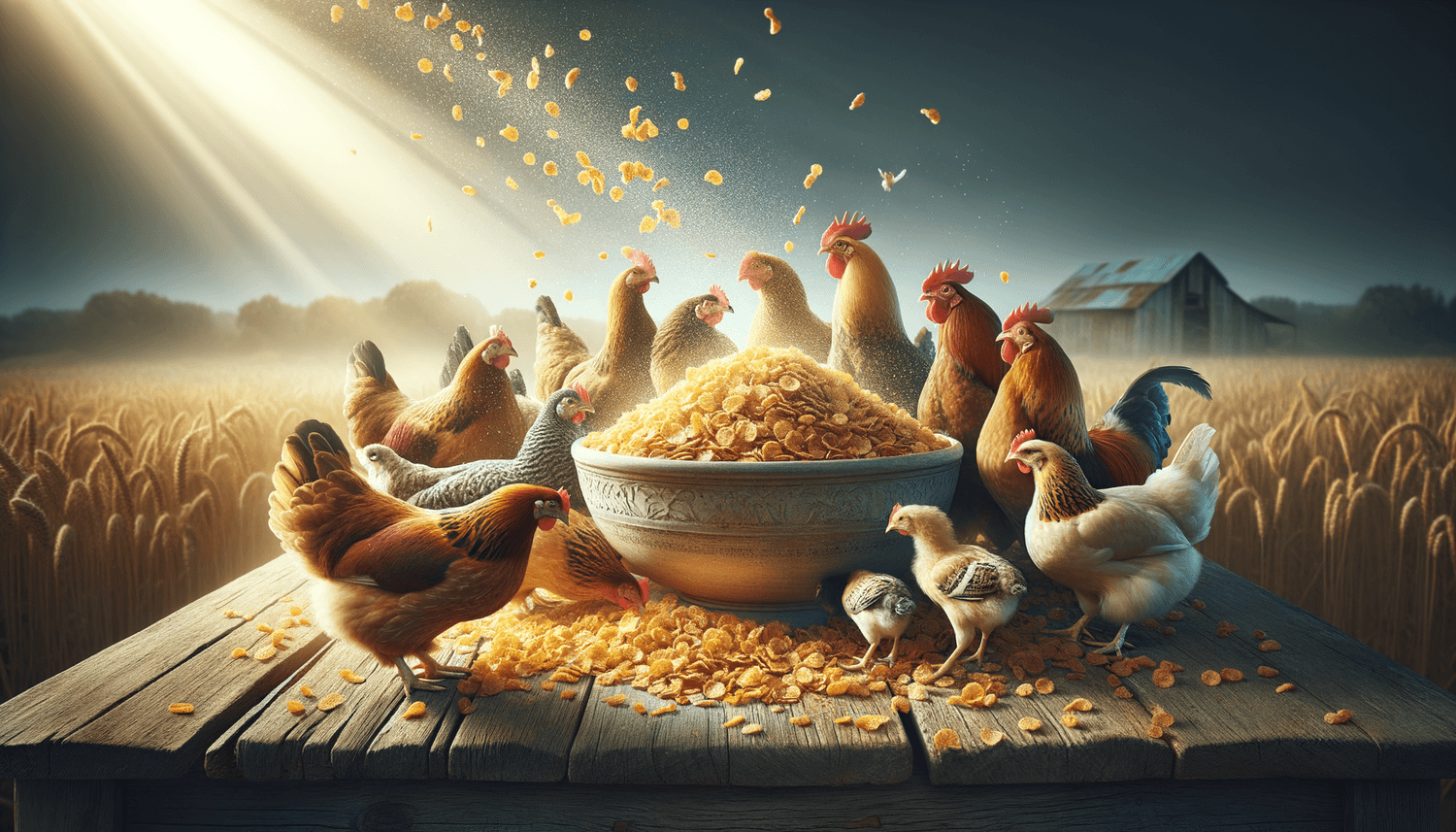Yes, chickens can eat Frosted Flakes, but they should do so in moderation. Frosted Flakes are a cereal made primarily from corn, with a significant amount of sugar added for flavor. While the corn base of the cereal is okay for chickens, the added sugars and artificial ingredients are not part of a nutritious diet for chickens and could lead to health issues if consumed in large quantities.
Quick Summary
- Chickens can eat Frosted Flakes in moderation.
- Frosted Flakes are not particularly nutritious for chickens and contain high sugar content.
- Key risks include obesity and nutritional imbalances.
- Chickens can have a small amount as an infrequent treat, but Frosted Flakes should not replace a balanced chicken diet.
Overview of Frosted Flakes
Frosted Flakes are a popular breakfast cereal known for their sweet, crunchy flakes. They are made primarily from milled corn and are coated with a sugary frosting. The cereal is fortified with various vitamins and minerals for human nutrition, but its high sugar content is a concern, making it less suitable for chickens’ dietary needs.
Benefits and Risks of Frosted Flakes for Chickens
The potential benefits of Frosted Flakes for chickens are minimal, limited to the cereal’s basic caloric content and the fortified vitamins and minerals, which are tailored to human, not avian, dietary requirements. The risks, however, include nutritional imbalance, obesity due to high sugar content, and potential digestive issues. The artificial ingredients and lack of fiber make it a poor choice for chickens’ health.
Feeding Guidelines
When feeding Frosted Flakes to chickens, it should be considered a rare treat. A small amount sprinkled over their regular grain mix or given by hand can be acceptable. Ensure that the Frosted Flakes are not stale or spoiled and that they do not make up more than 5% of the chickens’ overall diet. Always provide plenty of fresh water for chickens, especially when offering dry cereals.
Alternatives
If you’re looking for healthier snack options for your chickens, consider feeding them grains like oats, barley, or wheat. These grains are more natural for a chicken’s diet and do not contain the high levels of sugar found in Frosted Flakes. Vegetables, fruits, and cooked eggs are also excellent, nutrient-rich snack options.
Expert Opinions
Poultry nutritionists and veterinarians generally agree that while chickens can consume a variety of foods, their health is best sustained on a balanced diet specifically formulated for them. Commercial chicken feeds are designed to meet all their nutritional needs. Feeding excessive amounts of sugary snacks like Frosted Flakes can lead to health complications such as obesity and nutritional deficiencies. For guidance on treats and diet variation, always consult with a professional who is familiar with chickens’ specific dietary requirements.
Frequently Asked Questions
Readers who’ve learned about chickens and Frosted Flakes typically have further inquiries. Listed below are answers to some common questions.
How often can chickens have Frosted Flakes as a treat?
Chickens should only have Frosted Flakes occasionally—no more than once a week and only in small amounts, to avoid health issues associated with their high sugar content.
Are there any parts of the Frosted Flakes cereal that chickens shouldn’t eat?
Chickens should avoid eating any large clumps of sugar frosting or marshmallows that may be present in some varieties of Frosted Flakes. The cereal itself can be given but always in moderation.
What is a healthy treat option for chickens?
A healthy treat option for chickens includes small pieces of fruits and vegetables, such as leafy greens, berries, or cooked squash. These are nutritious and low in sugar, making them an excellent choice for a balanced chicken diet.

















